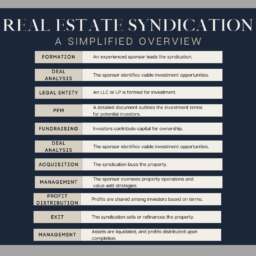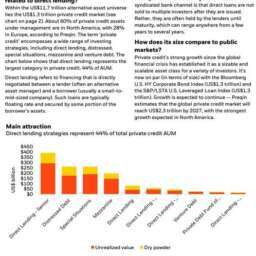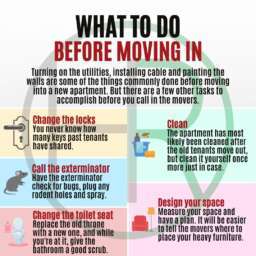Sometimes Home Buyers and Home Sellers Need to Work Together to Make the Deal Close
Sellers often focus on getting top dollar for their property, while buyers aim to secure a great deal. However, in the real estate world, collaboration between the two parties is necessary for a successful transaction. By understanding each other’s needs and finding common ground, both buyers and sellers can work together to navigate any challenges that may arise and ensure the deal closes smoothly. Communication, flexibility, and a willingness to compromise are key elements in this process, where the end goal is a mutually beneficial agreement that satisfies both parties.
Mutual Understanding and Cooperation: The Key to Successful Real Estate Transactions
In the intricate dance of real estate transactions, both sellers and buyers play pivotal roles with distinct objectives: sellers aim to secure the highest possible return on their investment, while buyers seek to acquire their ideal property at an advantageous price. Despite these seemingly opposing goals, the essence of a successful deal lies in the art of collaboration. By prioritizing communication, flexibility, and compromise, both parties can navigate through the complexities of the transaction process, overcoming hurdles that may arise along the way. This cooperative approach not only facilitates a smoother negotiation but also paves the path toward a deal that benefits all involved, highlighting the importance of mutual understanding and the willingness to work together toward a common goal.
Overcoming Obstacles through Effective Communication and Mediation
Central to the transaction process is the ability to effectively communicate and resolve any issues that may impede progress. Discrepancies over property valuation, repair obligations, or the timeline of the sale often emerge as common sticking points. Addressing these challenges necessitates a transparent dialogue where both buyers and sellers express their concerns and expectations openly. In instances where direct negotiation stalls, the introduction of a professional mediator or real estate agent can provide the necessary impartial perspective to bridge gaps and facilitate consensus. This external intervention not only ensures that negotiations progress smoothly but also minimizes the emotional strain on both parties, steering the transaction toward a successful close with solutions that are acceptable to both buyer and seller.
Strategies for a Win-Win Closure and Beyond
Achieving a win-win outcome in a real estate transaction demands a deep understanding of each party’s needs and the creativity to find mutually beneficial solutions. By engaging in empathetic negotiation and being open to innovative compromises, buyers and sellers can unlock the potential for agreements that might have seemed unattainable at first glance. Moreover, maintaining a positive rapport post-transaction lays the groundwork for future interactions and opportunities, reinforcing the value of goodwill and trust in the real estate domain. Feedback mechanisms post-deal can serve as a vital tool for continuous improvement, enhancing the satisfaction of all parties in future transactions.
- Effective Communication is critical for understanding each other’s needs and concerns.
- Flexibility and Compromise are essential in addressing issues and ensuring a successful transaction.
- Professional Mediation can be invaluable in facilitating negotiations and resolving conflicts.
- Mutual Understanding of each party’s goals can lead to creative solutions that satisfy both sides.
- Post-Transaction Relationships matter for future dealings and referrals, underscoring the importance of maintaining a positive connection.
Key Takeaways:
- Communication is Key: Effective communication between home buyers and sellers is crucial to understanding each other’s needs and concerns.
- Flexibility is Important: Both parties may need to be flexible with timelines, pricing, or other terms to ensure a successful transaction.
- Compromise is Necessary: Finding common ground and being willing to compromise on certain issues can help facilitate a smooth closing process.
- Professional Mediation can Help: In some cases, involving a real estate agent or mediator can help facilitate negotiations and resolve conflicts between buyers and sellers.
- Focus on the End Goal: Keeping the end goal of closing the deal in mind can help both parties work together towards a mutually beneficial outcome.
The Buyer-Seller Relationship
Mutual Goals and Benefits
Even though buyers and sellers are on opposite sides of a real estate transaction, they often share mutual goals and benefits. Both parties ultimately aim to reach a successful closing that satisfies their needs and expectations. Buyers aspire to find their dream home at a fair price, while sellers hope to sell their property for a price that reflects its value.
Communication Strategies to Facilitate Cooperation
To ensure a smooth transaction, effective communication between buyers and sellers is key. It is crucial for both parties to be transparent about their wants, needs, and concerns throughout the process. By openly sharing information and addressing any issues promptly, buyers and sellers can build trust and foster a cooperative relationship.
Plus, clear and honest communication can help prevent misunderstandings and reduce the likelihood of disputes arising. Ensuring that all parties are on the same page regarding important details such as the sales price, terms of the contract, and timelines is crucial for a successful real estate transaction.
Overcoming Challenges in the Deal Process
Identifying and Resolving Common Impediments
One important step in overcoming challenges in the real estate deal process is identifying and resolving common impediments that may arise. Issues such as disagreements over pricing, repairs, or timelines can stall a deal and lead to frustration for both buyers and sellers. By openly discussing concerns and finding mutually beneficial solutions, parties can work together to navigate these obstacles and move closer to closing the deal.
Role of Mediation and Conflict Resolution
Any real estate transaction can benefit from the role of mediation and conflict resolution. In situations where negotiations have reached a standstill or tensions are running high, enlisting the help of a neutral third party can facilitate communication and guide the parties towards an agreement. Mediators can offer creative solutions, help manage emotions, and ensure that all perspectives are heard and considered. Plus, having a mediator involved can help avoid potential legal disputes and save time and money in the long run.
Negotiation Tactics for a Successful Closing
Understanding the Other Party’s Needs and Constraints
Your negotiation efforts should always start with understanding the other party’s needs and constraints. Whether you are a home buyer or seller, taking the time to listen and empathize with the other party’s situation can provide valuable insights that may lead to a successful deal closure. By understanding their motivations and constraints, you can tailor your negotiation strategy to address their concerns effectively.
Finding Creative Solutions and Compromises
Needs in negotiation are about finding common ground and exploring creative solutions that can address the needs of both parties. By being open to compromises and thinking outside the box, you can find solutions that may not have been initially apparent. This approach can help break deadlocks and facilitate a successful closing. Keep in mind that the goal is not just to win the negotiation but to reach a mutually beneficial agreement.
Other factors to consider in finding creative solutions and compromises include assessing the property’s market value objectively and being open to exploring alternative financing options. By keeping an open mind and being flexible in your approach, you can increase the chances of reaching a successful closing with the other party.
Post-Agreement Considerations
Maintaining Positive Relationships for Future Transactions
For a successful real estate transaction, it’s crucial to maintain positive relationships even after the deal is done. Building trust and goodwill with the other party can pave the way for future collaborations and referrals. Keep communication lines open and be courteous in all interactions, as this can lead to smoother transactions down the line.
The Role of Feedback and Continuous Improvement
Considerations should be given to the importance of feedback in the real estate process. Feedback from both buyers and sellers can provide valuable insights into areas for improvement. By actively seeking and implementing feedback, real estate professionals can enhance their services and increase customer satisfaction.
Understanding that constructive feedback can help identify potential areas of growth and improve the overall experience for all parties involved is crucial. Real estate professionals should embrace feedback as a tool for continuous improvement, ultimately leading to more successful transactions in the future.
Buyers and Sellers
So, it is clear that sometimes home buyers and home sellers need to work together to make the deal close. By understanding each other’s needs, being flexible, and open to compromise, both parties can reach a mutually beneficial agreement. Effective communication, honesty, and willingness to find common ground are important in ensuring a successful transaction. At the end of the day, collaboration and cooperation between home buyers and home sellers can lead to a smooth and satisfying real estate experience for all involved.
FAQ
Q: Why is it important for home buyers and home sellers to work together to make the deal close?
A: It is crucial for both parties to collaborate effectively in order to ensure a successful and timely real estate transaction.
Q: What are some common challenges that can arise when home buyers and home sellers do not work together?
A: Some common challenges include disagreements over pricing, inspection issues, delays in paperwork, and difficulties with financing.
Q: How can home buyers and home sellers effectively communicate and cooperate during the home buying process?
A: Clear and open communication, realistic expectations, and a willingness to compromise are key to fostering a positive working relationship between buyers and sellers.
Q: What are some strategies that can help home buyers and home sellers resolve conflicts and reach a mutually beneficial agreement?
A: Engaging in respectful negotiations, seeking professional mediation if needed, and focusing on the end goal of closing the deal can help parties overcome obstacles and find common ground.
Q: What are the benefits of a collaborative approach between home buyers and home sellers in real estate transactions?
A: By working together, both parties can increase the likelihood of a successful closing, minimize stress and misunderstandings, and lay the foundation for a positive post-transaction relationship.
Sammy Loggins
It's Nice to Share

























































































Comment, Write a Blog Post, Create Groups, Get Seen!
Comments, Opinions and Facts Go Here...👇